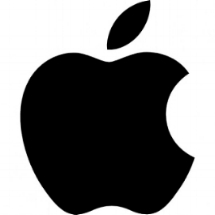There was a lot of buzz going around this past week around Apple’s announcement that they're adding a personal health record to the iPhone.
Of course, this has been tried before; Google, Microsoft, and many, many others have tried and failed. This time Apple has a better shot in that they 1.) have a device in people's hand and 2.) they've partnered with several large hospitals & health systems and electronic health record (EHR) vendors to pull data down to the device.
Bijan Salehizadeh asked the right question on Twitter: did past efforts at consumer-driven personal health records not work because of poor user experience or did they not work because people just don’t care enough about their health records?
I’m in the camp of people not caring enough. Put aside the importance of what Apple is trying to accomplish and the incredible impact it could have if it were successful and get back to the basics of consumer behavior and what makes an iPhone app work.
In order for someone to choose to spend time on an app (when there are millions of them in the app store) the user needs to get something in return. And they need to get that return quickly. When I search for a restaurant on Foursquare I get a return (recommendations). When I use OpenTable I get a return (a dinner reservation). When I use WhatsApp I get a return (a conversation with a friend). When I use Spotify I get a return (music).
But what does the consumer get when they upload a bunch of health data into the Apple health record? Nothing. At least not immediately. At least not until they’re sick. Which they hope they never are. There's no clear return. This is the challenge with patient-driven health records.
This is part of the brilliance of Zocdoc (disclaimer: I worked there for almost 4 years). They are able to compile important health information from the consumer. Lots and lots of it. Every single day. They’re able to do it because the user gets something in return immediately for engaging and sharing their health information (a doctor’s appointment).
In my view, the companies that have failed on personal health records have failed because they didn't fully appreciate the way consumers engage with their own healthcare and they ignored the core tenets of consumer behavior. People are busy and have been trained to ignore everything unless it makes them feel good or gives them some near instant utility. Unless Apple's personal health record app can find a way to deliver utility back to the user (quickly) I fear that it may share the same fate as those that have tried and failed.



